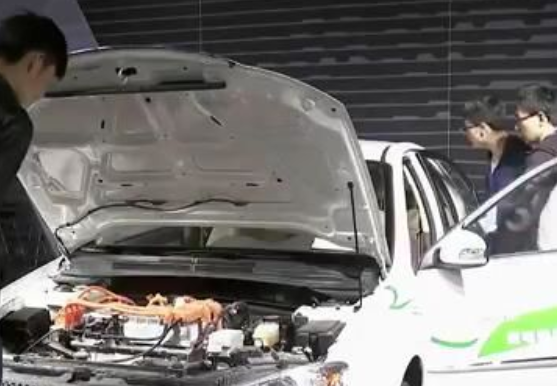East China’s Jiangsu province has continuously adopted policy incentives in recent years to accelerate the transformation of green consumption, promote green production with green consumption, and inject new impetus into high-quality development.

Zhang Changjian, a company employee in Nanjing, has been shuttling back and forth between his office in Nanjing and his home in Gaochun, a suburban district to the south of downtown Nanjing.
He bought a new energy car in May this year in a bid to make it easier for him to travel between the two places.
Needless to say, new energy vehicles are cost-efficient.
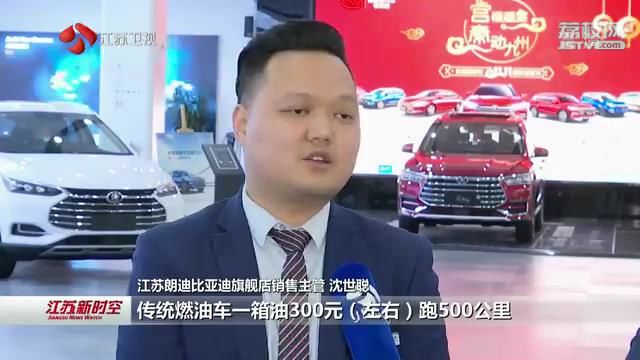
Shen Shicong, sales executive of BYD Automibiles
Fuel cars can run 500 kilometers
by filling up the tank at 300 yuan
For electric cars
the battery life can last
up to 600 kilometers with 28 kWh
for one charge at a cost of tens of yuan
Green consumption has gradually gained popularity in Jiangsu partly due to the consumption upgrade and partly due to the positive guidance of the government.
Early this year, Jiangsu released an action plan encouraging the upgrade of the consumption system between 2019 and 2021.
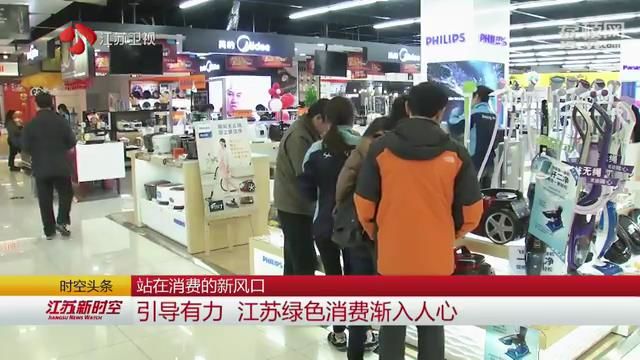
On the one hand, governments at all levels have made great efforts to raise public awareness of green consumption. On the other hand, they have encouraged green consumption by accelerating the construction of green public infrastructure and implementing the policy of “trade-in the old for the new”.
Many consumers have begun to show preference for green appliances such as refrigerators that remove pesticide residues in fruits and vegetables, purifiers that improve air quality and water quality, and low-power stoves with digital sensing technology.
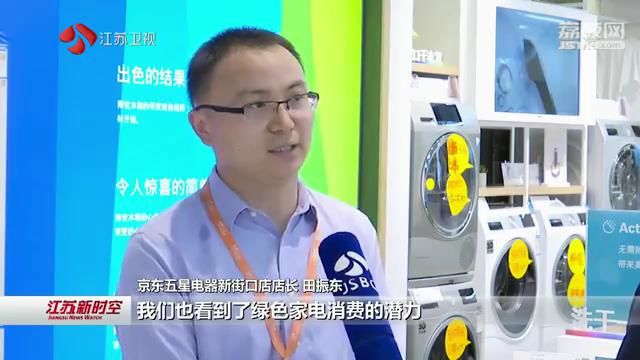
Tian Zhendong, manager of Xinjiekou outlet, JD.com
We have also seen the potential
of green household appliances consumption
From the sales of green energy-saving products
we have increased the turnover this year
by at least 20% to 30% over last year
The huge green consumer market is also pushing for the green production of traditional Jiangsu enterprises. This environmentally friendly fabric called Qianmo is the heavyweight product produced by Suzhou Jintong Textile Co., Ltd.
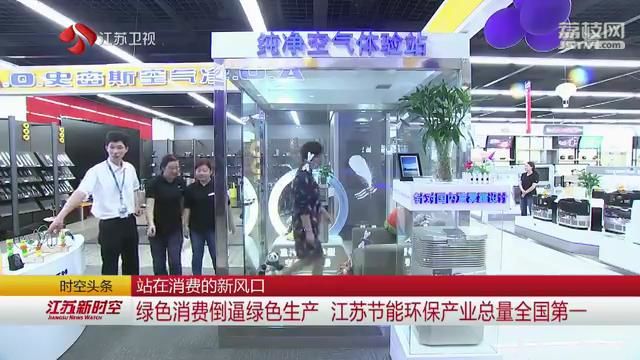
Thanks to the use of recycled raw materials and advanced environmental printing and dyeing processes, it won the award at the 3rd China Eco-friendly Fabric Design Competition.
The company has obtained the global recycling standard certification for textile and apparel, and its 6 eco-friendly fabrics innovatively researched and developed are favored by the first-line fast-moving fashion brands.
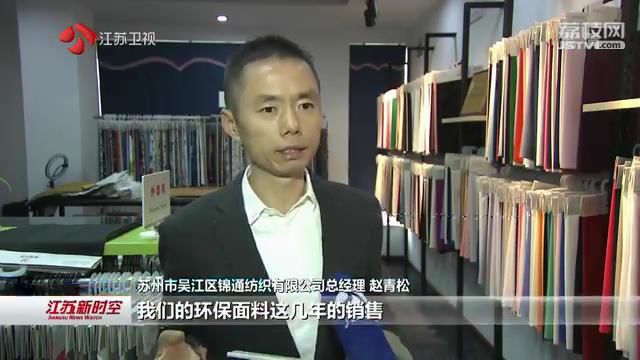
Zhao Qingsong, General Manager of Jintong Textile Co., Ltd., Wujiang District, Suzhou City
Our sales of environmentally friendly fabrics
have increased by about 30% in the past few years
with our profit margin increasing by at least 20%
The two-way promotion of industrial restructuring by the market and the administration is becoming a distinctive feature of Jiangsu's guiding green consumption. At present, Jiangsu's green consumption has become the frontrunner in the country. Among them, the energy-saving and environmental protection industry has grown at an average annual rate of over 10%, ranking first in the country.

Lyu Yonggang, research fellow, Jiangsu Academy of Social Sciences
Green consumption has increasingly changed
from niche consumption to mass consumption
The Fourth Plenary Session of the 19th CPC Central Committee
proposed to promote the green cycle
and low carbon development more consciously
I think that Jiangsu still needs
to implement comprehensive policies
We must use the power of ideas
the power of planning
the power of the market
and the power of institutions
so as to continue to promote the transformation
of the entire production structure
and living structure
from both ends of supply and demand.
